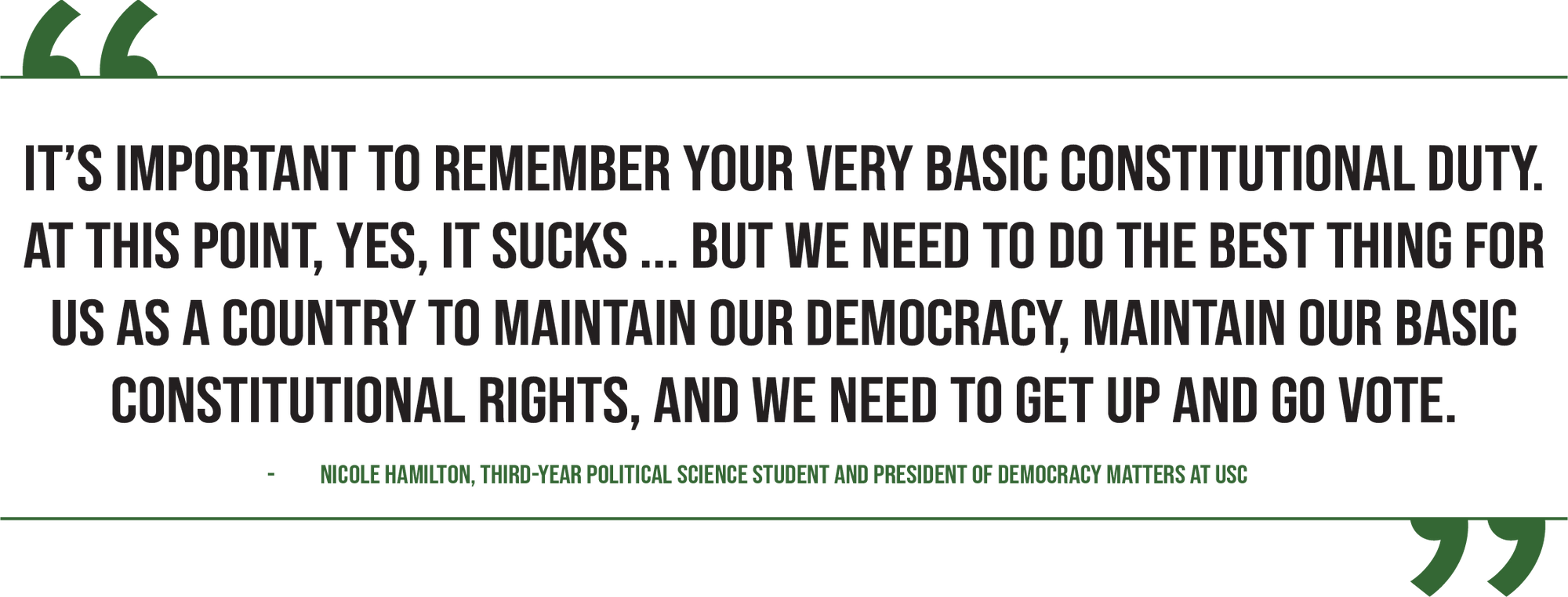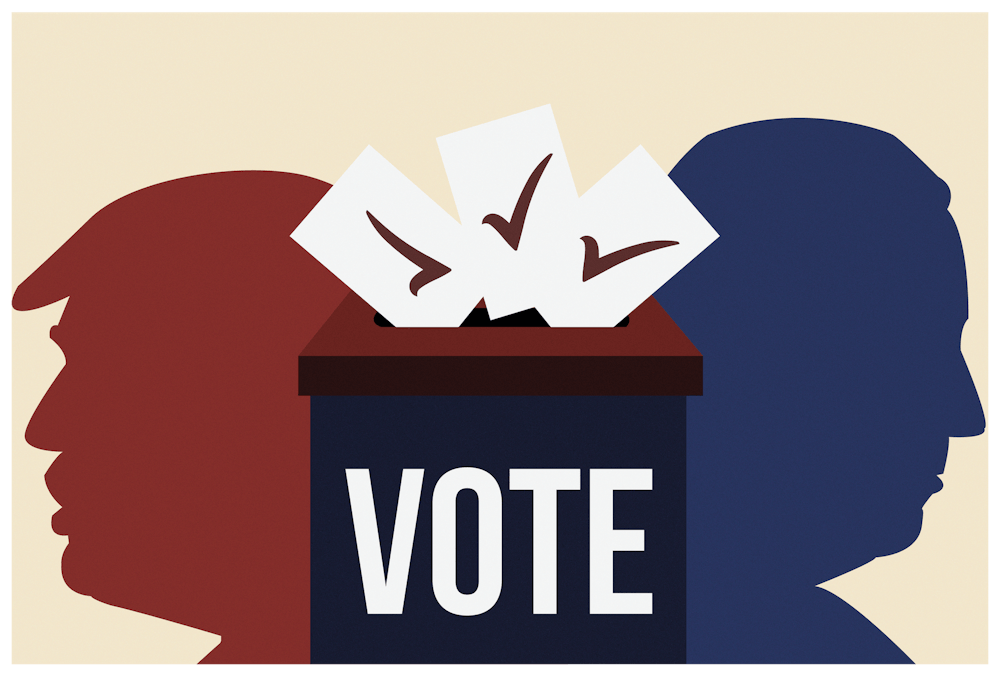With primaries in full swing and the 2024 presidential election just around the corner, it's more important than ever to be educated on the importance of voting.
You might have seen Donald Trump at Williams-Brice Stadium last semester at the USC-Clemson game. Or maybe you heard about Joe Biden's and Kamala Harris' visits to Columbia. But these politicians aren't just here to visit. They’re here for votes.
The South Carolina Democratic primary came and went on Feb. 3, and the state is now gearing up for the Republican primary on Feb. 24. With USC being located right by the South Carolina Statehouse, it's almost impossible to not hear or see something related to the primaries. And with students so ingrained in the environment here, there's no excuse to not pay attention.
Since buzz around the primaries and their candidates is making its way around USC, let's take a look at how college students have showed up to vote in recent elections:
In the 2016 election, only 48% of college students voted nationwide, putting them behind the national average of 61% for all U.S. citizens. But these numbers increased significantly during the 2020 election, when 66% of registered college students made it to the polls, according to the Washington Post.
So, why are some college students not voting? Although there is no definite answer, the lack of knowledge on how and where to vote seem to be primary reasons. USC doesn't have an in-person voting option on campus, which could be decreasing voter turnout among its students.
Nicole Hamilton, a third-year political science student and president of Democracy Matters at USC, said she was concerned about the community not being given time off to vote.
"You have to ask yourself, 'Why don’t they want me to (vote)?'" Hamilton said. "We don’t get out of school. We don’t get out of work to go vote, and that within itself is a form of voter suppression."
Hamilton said there is another form of voter suppression that people might not have realized: long, in-person voting lines.
“That’s one of the more unfortunate things about the state of voting currently,” Hamilton said. “There’s a lot of activities that are suppressing that you wouldn’t even think about it. For example, voting lines. The lines are so long — you can wait for like three hours — no water, no food. That is a form of voter suppression.”
According to the New York Times, those who have to wait longer in line to vote report feeling as if their vote was not accurately counted. Therefore, they may feel as though the system is flawed, causing them to question whether they should vote again the next time.
To ensure one will not become a victim of long lines and voter suppression, make it a priority to vote early. Although the window for voting early in the Democratic primaries is over, the window for the Republican primary is open now until Thursday, Feb. 22.
Voting early can dramatically lessen wait time at the polls, and allows for a stress-free experience that you don't have to miss school or work for. Information on when and where you can vote early can be found here.
Although voting early can combat physical obstacles, emotional obstacles still remain. Many individuals feel like their vote will not matter in a sea of millions. And as a singular college student in a school of nearly 35,000 people, it is easy to feel overwhelmed and overpowered by others already.
But consider the Bush vs. Gore presidential election in 2000. Al Gore's and George W. Bush’s fates came down to a recount in Florida, and Bush's narrow victory required the Supreme Court's involvement. Gore could have won if only 600 more people had voted for him in Florida, according to National Geographic.
Hamilton said that she understands voters' frustrations when it comes to feeling like one's singular vote does not matter.
“It’s extremely valid to feel the way that you're feeling right now,” Hamilton said. “I feel that way too, and I know a lot of people in my organization — they all feel the same way too. Everyone is all in the same boat right now.”
With more Gen Z voters potentially opting out of the 2024 election, it is essential for students to push their friends to go out and vote.
“It’s important to remember your very basic constitutional duty. At this point, yes, it sucks ... But we need to do the best thing for us as a country to maintain our democracy, maintain our basic constitutional rights, and we need to get up and go vote,” Hamilton said.

Being an active member of our democracy and creating a large voter turnout will increase the chances of political figures listening to people's needs. Think about what potential changes America could benefit from, and research which candidates are advocating for them.
If only a couple hundred votes can potentially determine who becomes president, that goes to show how powerful voting really is.
There are resources available to ensure you are registered to vote and know where and when to do so. You can register to vote on vote.gov, find a location near you, and check your registration status.

